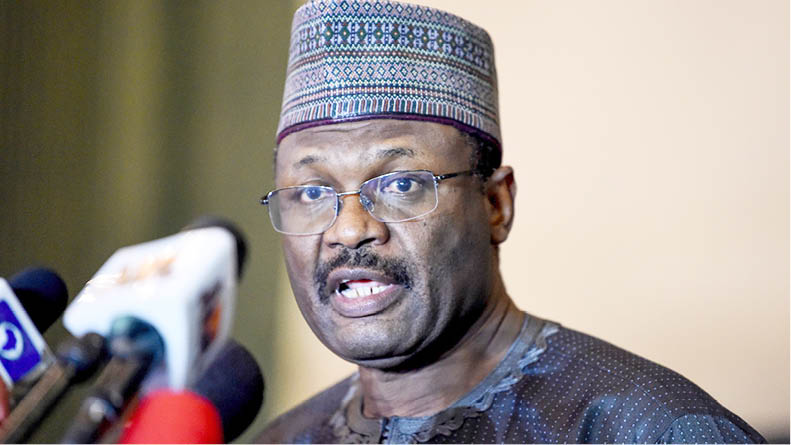I am beginning to see signs of evolving plans to stop the president from signing the Electoral Amendment Bill and I seriously hope that I am wrong. On Monday, Abubakar Malami, the Minister of Justice and Attorney-General of the Federation, declared in an interview with Channels Television that President Buhari may withhold assent from the Electoral Act (Amendment) Bill if it is considered to have proposals based on personal interests. It was a strange comment because he said it had just arrived on his table and he had not yet studied it. If he had not read it, why was he talking about the president rejecting it?
The bill which the National Assembly transmitted to the Presidency the second time on Monday, January 31 has been with the president for 11 days now. President Buhari had withheld assent to the first version of the bill last year after keeping it without comment for a full month before consulting with the Ministry of Justice and the Independent National Electoral Commission, among others, and then returning it to the National Assembly.
- Kaduna traffic marshals ordered to remove roadblocks
- Lagos slum gets hub where entrepreneurs co-work
According to the Nation of February 9, President Buhari is under pressure to reject the reworked Electoral Act Amendment Bill 2022. The lobby is said to be framing an argument that the bill contains “certain anti-democratic and discriminatory clauses”. Their concern is the clause that requires that no political appointee at any level – minister, commissioner or board chairman – can vote or be voted for during primaries. They are mandated to resign before the primaries of their parties if they want to participate in the process. The situation currently is that if the bill is signed into law, political parties will be expected to submit the names of their presidential candidates by August 18 this year, that is six months before the date of the presidential election. It will be recalled that the Independent National Electoral Commission (INEC) has already drawn up the timetable and scheduled the presidential election for February 18, 2023.
Political office holders therefore, out of pure selfishness are trying to scuttle the bill so that they can stay in office while the primaries are on-going. This goes against the protocol and best practice set by all Nigerian leaders since 1999 – that political office holders who want to contest for office must resign from their positions in good time before primaries.
President Buhari himself has made this clear in the run up to the 2019 general elections. These office holders know it, that is why they are reframing the narrative in the form of “anti-democratic clauses” in the reworked Electoral Act Amendment Bill 2022. If they succeed in their campaign, we may end up using the Electoral Act 2010 (as amended) for the 2023 general elections, which would waste all the efforts made collectively by INEC, political parties and civil society to develop a new electoral law that is fit for purpose and would definitely improve the integrity of future elections.
The electoral bill has been a fulcrum for the titanic political battle between state governors on one side and federal legislators on the other on the issue. In an interesting power game that led to the rejection of the first bill, most state governors openly canvassed support for delegate-driven conventions for party primaries. Their reasoning is well known to Nigerians, they have almost total control of political structures in their states so whoever they want “wins” primaries held in the state.
Many legislators are apprehensive that their governors, as they usually do, love changing legislators at each election so that no one within the state builds sufficient political capital to become a major actor. Based on their fear, most legislators lined up in favour of primaries through direct election thinking that is their best bet in preventing the governors from making them ex-legislators. Nigerians were surprised to find out that President Buhari took the side of the governors and refused to sign. This time round, governors are keen to flood congresses with their political appointees and legislators were aware of their intentions and blocked the loophole. The question today is whether once again, the president will side with governors.
In his letter of rejection to the National Assembly, the president argued that the conduct of direct primaries across the 8,809 wards across the length and breadth of the country will lead to a significant spike in the cost of conducting primary elections by parties as well as increase in the cost of monitoring such elections by INEC, which has to deploy monitors across these wards each time a party is to conduct direct primaries for the presidential, gubernatorial and legislative posts. The National Assembly responded by amending the bill and allowing parties to decide for themselves whether they wanted direct, indirect primaries or even choice of candidates by consensus.
Moving forward, the key issue is that the bill is extremely important for the development of electoral democracy and enhancing its integrity in Nigeria. The National Assembly worked hard and amended the bill in record time. President Buhari, who has always said that the legacy he wants to leave to Nigeria is the promotion of the culture of free, fair and transparent elections should seize the moment and sign the electoral bill. We must not return to the position in 2019 when the president rejected the amendment bill and we had to fall back to use the Electoral Act 2010 (as amended).
It appears that many politicians, for their selfish purposes would want Nigeria to use the old Act. That electoral act is today problematic because the Supreme Court has ruled that the INEC Manual that recognises use of Card Reader in authenticating voters in any election is illegal, and voided it. In this context, the provision for the electronic transmission of results in the proposed bill is extremely important for our democratic progress and must not be allowed to fall.

 Join Daily Trust WhatsApp Community For Quick Access To News and Happenings Around You.
Join Daily Trust WhatsApp Community For Quick Access To News and Happenings Around You.


